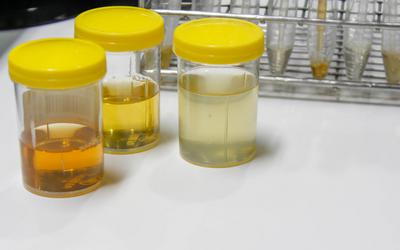Handling Employment Substance Abuse
Employment substance abuse negatively affects safety in the workplace for employers, employees and customers, and negatively impacts revenue.
According to the National Council on Alcoholism and Drug Dependence (NCADD), more than 70 percent of all adult illicit drug users are employed part-time or full-time. With the increasing prevalence of substance abuse in the workplace and the legalization of marijuana in many states, it becomes crucial for employers to recognize the signs of substance abuse, work to prevent substance abuse in the workplace, and develop a clear drug abuse policy.
A substance abuse treatment prevention and policy plan help improve workplace safety, reducing the dangers to employees and customers from employees under the influence of drugs at work.

Developing a Drug and Substance Abuse Policy
Developing a clear and concise drug testing policy helps employers and employees to understand their expectations and legally protects those that abide by the policy.
Some employers must legally meet specific requirements for developing a policy. These industries include workers in safety-sensitive positions who must follow Department of Transportation (DOT) guidelines for drug and alcohol testing. Employers that receive federal contracts of at least $100,000 must comply with the Drug-Free Workplace Act, and other employers choose to maintain drug-free workplaces and develop their own policies.
A proper pre-employment and random drug testing policy states the rules regarding substance abuse in the workplace and clearly states the consequences for violating workplace policy.
When developing a workplace substance abuse policy, employers should include details regarding:
Employers should give each employee a written copy of their substance abuse policy and obtain signatures that their employees received and read the policy.
Identifying Warning Signs of Substance Abuse at Work
These warning signs don't always mean the employee is abusing substances in the workplace, but they should alert employers and managers there might be a problem.
Some warning signs to watch for include:
A consistent combination of these signs should further alert the employer to investigate a substance abuse problem.
Drug Testing for Reasonable Suspicion
Drug testing should be considered if an employer confronts a worker who doesn't explain odd behaviors.
If two managers observe alerting behavior and document it, they can send the employee for reasonable suspicion drug testing. It's essential to clearly explain this process in the company's substance abuse policy to avoid legal repercussions.
Employment Drug Testing
Employment drug testing is crucial for preventing substance abuse in the workplace, and every employer should adopt a drug and substance abuse policy.
Why all employers should drug test:
Types of employment drug testing include:
SAMHSA guidelines require a 5-panel drug test that checks for amphetamines, THC, opiates, cocaine, and Phencyclidine (PCP). However, most private employers don't limit which substances the employer can test.
Frequently Asked Questions
What do you do if you suspect an employee is under the influence?
Employers must use caution and confront the employee, allowing for an explanation before an accusation. Suppose an employee is falling asleep at work every day. In that case, the employer should open the door to further conversation by pointing out their observations and asking if they can help.
Confronting an Employee About Substance Use in the Workplace
As shown in the example above, employers should not accuse a worker of substance abuse but rather obtain more information.
Although employees won't likely admit to a substance use problem, the employer can take it as an opportunity to address performance issues and expectations.
Failure to address the issue will result in disciplinary action for the employee.
Where can I get a random drug test?
Random drug testing occurs in a certified, independent medical laboratory that abides by federal guidelines. Urine samples for random drug testing are collected, following the procedures given by the lab. These procedures ensure privacy while preventing the tampering of test results.
Health Street provides reliable background screening and drug testing services to employers. Testing services include DOT drug tests, alcohol testing, mobile testing, and employment drug testing at over 5,000 locations.





